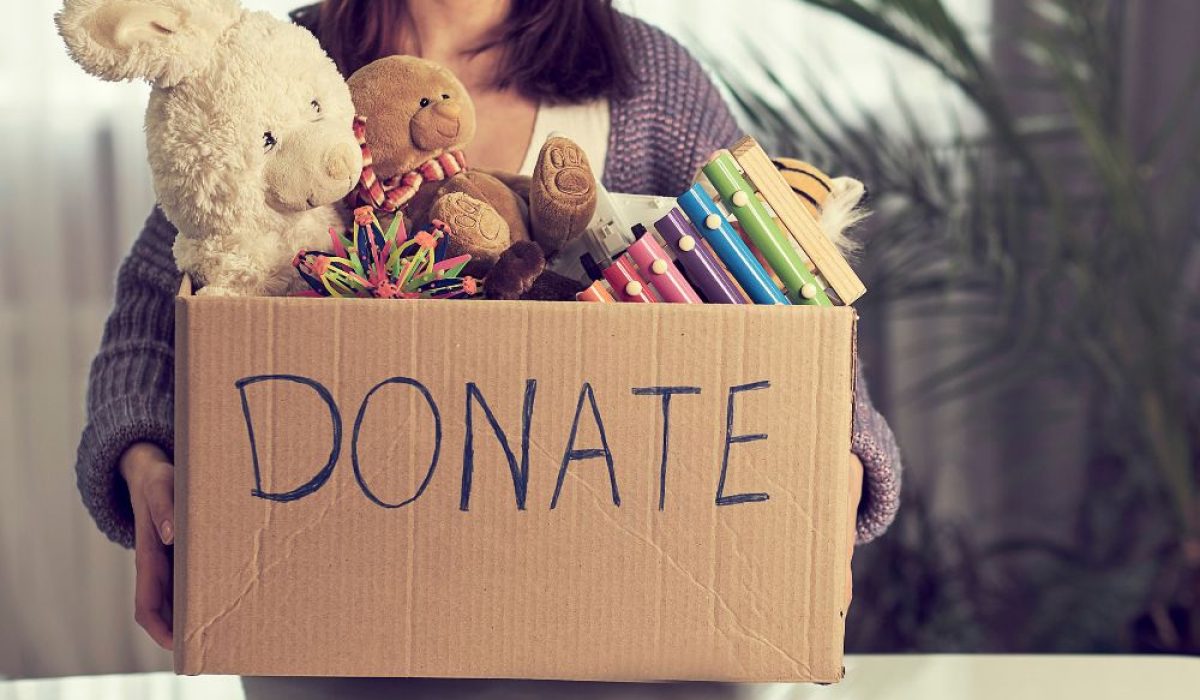Donating toys teaches kids important values, such as kindness, generosity, and gratitude. It also reinforces positive behavior by encouraging children to think outside themselves and consider those who are less fortunate. By going about the process the right way, you’ll declutter and teach your kids valuable lessons. Refer to this guide on the dos and don’ts of donating children’s toys as you sort through their belongings.
The Dos of Donating Toys
When it comes time to donate toys, there are a few things you can do to ensure your contributions are meaningful and helpful. As you prepare to give toys away, you should remember to:
- Work as a team
- Donate locally
- Keep special toys that are meaningful to your kids
Donating toys is an exciting activity that can bring entire families closer and benefit local communities!
Work Together
Working with your child to select which toys they should donate presents a learning opportunity for them. Take time to explain that some children don’t have new toys and that everyone deserves something great to play with. This conversation will help them understand that donating things can positively impact someone else’s life.
By working as a team and allowing your child to participate in the decision-making process, you also give your kid a sense of control over the event. Remind your child that you value their opinion and encourage them to decide what they would like to donate to help others. Together, you and your kids can make a big difference!
Donate Locally
When it comes to the act of giving, there are innumerable approaches that make a difference. Donating to local organizations is a fantastic way to improve your community. It can sometimes be hard to find volunteer projects that are suitable for young children, but donating is something that anyone can do. Plus, when you donate locally, your child can be reassured that their toys and stuffed animals are going to good use, making them feel better about parting with their beloved items.
Keep Special Toys
It may be difficult for your child to let go of belongings that were special gifts or have countless memories attached to them. For instance, your child may have a stuffed animal that they once took on multiple road trips, but now no longer plays with. Despite that lack of use, they may want to keep this toy because the stuffed animal is still special to them and holds a lot of treasured memories.
If your child isn’t ready to donate their sentimental toys just yet, allow them to keep them for the time being. We all have at least one treasured belonging that we never want to part with. Your child may want to keep extra-special toys as keepsakes to someday pass on to their own kids. On the other hand, they may feel ready to donate the item in a year. Everyone’s time frame for outgrowing toys is different; holding onto one or two toys, for the time being, is perfectly fine.
Clean Toys
Once you’ve decided what you’ll give to charity, give the toys a good scrubbing. Wipe down plastic toys and put any stuffed animals in the washing machine. This ensures the items are sanitized and appear as good as new for the children that receive them.
The Don’ts of Donating Toys
Donating toys can be a great way to spread joy and kindness. It’s important to remember that there are a few don’ts when going about the process. Avoid donating toys without your child’s approval or only giving away low-quality items. Both actions negate the impact of the donation as a whole and the sentiment behind it.
Don’t Donate Behind Their Back
You may feel tempted to work alone and donate any toys that you feel your children have outgrown or don’t play with anymore. By working alone, you can move swiftly and determine exactly what should go to charity. However, this speed and efficiency isn’t worth jeopardizing your child’s trust.
Taking away your child’s toys and donating them without their knowledge can be quite upsetting to them. It can cause a feeling of betrayal as the child realizes that something they deeply cared for is gone without their approval. This can also cause them to view donating as an unfair act, and they may develop negative emotions toward it.
Donating gently used toys is an excellent way for children to learn the importance of charity, and parents should do their best to respect their child’s feelings and autonomy throughout the donation process. Don’t rob them of this experience for the sake of saving time. Instead, explain to your child why you want to donate their old toys, then ask them to pick a few belongings to donate.
Donating Tip
If your child struggles to part with their belongings, work together to decide the number of toys you want them to donate. This gives them a clear numeric goal that you can work toward together.
Don’t Only Donate Low-Quality Toys
When considering what toys to donate, remember that you should strive to select items that you would be happy to give to a family or friend as a gift. Cheap or broken toys are not only an eyesore, but they also negatively impact those receiving the donation. Additionally, a charity organization is more likely to dispose of such items than give them to a child in need.
Only donating low-quality toys also sends the wrong message to your child. Rather than seeing charity as a way of helping others, they may assume it’s a way to dispose of damaged toys they can no longer use.
Instead, focus on donating items in new or near-perfect condition to ensure those receiving your donation have something worthwhile to keep or play with! Receiving a donation that is in good condition will brighten someone’s day and will communicate your care for the individual receiving the toy.
Why Donation Matters
Understanding the dos and don’ts of donating children’s toys will make it easier to declutter your kids’ bedroom or playroom.
Donating toys to kids in need is a worthwhile endeavor that goes beyond simply decluttering your home. Giving to charity helps boost a child’s confidence and provides them with personal development opportunities. Donating old toys is one of the best ways to teach a child about empathy and reminds them that giving can feel as rewarding as receiving.
Project B Green
Project B Green will happily take your old, gently used toys. Project B Green is a for-profit organization serving Northern Virginia, Maryland, and the District of Columbia. We partner with local non-profits to make a change in the community. All your in-kind charitable donations are tax-deductible. You and your kids can leave an incredible impact on your neighborhood by donating your belongings to Project B Green.


